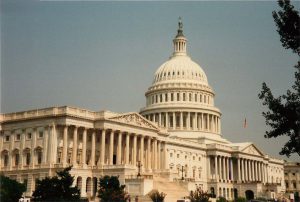 We’re getting ready for a cross-country trip to our staff conference in Colorado. Our grandson, Tre, is going with us, and as we go, I’m sure we will have a few discussions about capitals. It reminds me of this Psalm I read a few weeks ago.
We’re getting ready for a cross-country trip to our staff conference in Colorado. Our grandson, Tre, is going with us, and as we go, I’m sure we will have a few discussions about capitals. It reminds me of this Psalm I read a few weeks ago.
God loves his city, Jerusalem.
I guess I haven’t grasped the affection God has for this city; the affection David and the people of Israel have for this city. I don’t share that affection for Washington DC (although it is amazing). I wondered why and cam up with a few thoughts:
1 – God founded it. He’s the one who declared it the capital of “his” nation.
2 – God loves the gates, more than any other dwelling places of Jacob. In other words, Jacob lived other places, but they didn’t have gates that kept those unwanted out. It wasn’t secure.
3 – Glorious things of it are spoken. We have so much scripture that affirms the holiness of the city as being the center of no only their nation but as their spiritual connection to their God (sacrifices at the temple).
4 – It is the center of the records of their families. It’s their personal history. “This one and that one were born in her…The Lord records as he registers the peoples.”
5 – “The Most High himself will establish her.” God not only established it, but is continuing to establish it into the future.
6 – Singers and dancers alike say, “All my springs are in you.” Springs often have sexual connotations (springsthat comes from a man — a little X rated! Sorry if you blushed!) But that’s how deeply they feel their connection to their God.
What about me, my capital, my relationship with God? It’s hard for me to relate, but I started to make correlations:
1 – God founded it — as much as we say the US was founded on Christian principles, it’s now being as interpreted as freedom of (or from) religion. DC is not the capital of a Christian nation but of a nation that has Christians in it. However, I have been reborn in Christ. Therefore God founded his city with me as an adopted child.
2 – God loves the gates — we don’t have any assurances from God that he will keep DC or my nation safe. However, I know that he will “never leave me or forsake me” and therefore, I find safety and security in him.
3 – Jerusalem is the centerpiece of their relationship with God — DC is not the center of my faith. However, my centerpiece is Jesus himself, who lives in me through the Holy Spirit and speaks to me through his Word. Therefore I confess and relate to him there.
4 – It is the center or records, from which people find their lineage — I know DC has a hall of records, but it’s one of the things that frustrates me: how poorly we know who are our citizens. We allow people who have no record of citizenship vote, leaving the door open for fraud. It seems like we could have an amnesty to register to vote and then keep family records from there? (thanks for letting me get that off my chest!) But since I have been adopted into the Body of Christ, I bear his identity, his bloodline. Therefore, Jerusalem spiritually is my bloodline. (I’ll have to chew on that more…)
5 – God establishes it into the future — God has not promised to establish the US into the future. But, he has promised me eternal life. Therefore, I am secure in my feelings about death and afterlife.
6 – “My springs are in you.” I can sing and dance, not because of my nation, but because my very life has been given to me through Jesus, because of the intimacy I have with him.
I’ve always had a hard time feeling fond of Jerusalem. Now I understand better why: so much of our thinking is political, I can’t feel Jerusalem as my capital.
But when I think of my relationship with Jesus, it all makes sense.
And I sing and dance!
How do you feel about Jerusalem? How has this Psalm affected your thinking? I’d love to hear from you in the comments…
 (I thought this was appropriate for the news today…)
(I thought this was appropriate for the news today…) There is the famous Disney tune, “Let it Go.” We’ve had our own version of that lately with Irma, but even before that I was thinking about the whole area of letting things go. (picture below is Roger, Winston and I riding out the storm)
There is the famous Disney tune, “Let it Go.” We’ve had our own version of that lately with Irma, but even before that I was thinking about the whole area of letting things go. (picture below is Roger, Winston and I riding out the storm)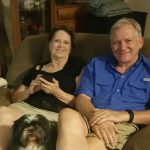
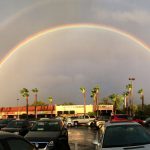 And I think of the Lord saying, “Don’t worry about tomorrow…” and try to balance it with Paul’s “make the most of your time.” There is a responsibility of this precious life, and yet, we need to hold it loosely, not become OCD, and, as Disney says,
And I think of the Lord saying, “Don’t worry about tomorrow…” and try to balance it with Paul’s “make the most of your time.” There is a responsibility of this precious life, and yet, we need to hold it loosely, not become OCD, and, as Disney says, (I wrote this a year ago, but emotions were raw at that time. It’s a little longer than most of my posts, but hang in there!)
(I wrote this a year ago, but emotions were raw at that time. It’s a little longer than most of my posts, but hang in there!) It is well with the man who deals generously and lends;
It is well with the man who deals generously and lends;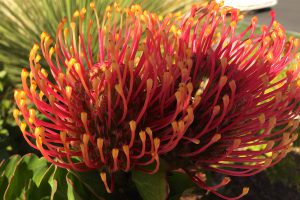
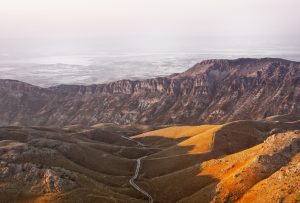 “Tremble, O earth, at the presence of the Lord.”
“Tremble, O earth, at the presence of the Lord.” “Blessed is the man who fears the LORD”
“Blessed is the man who fears the LORD” We’re getting ready for a cross-country trip to our staff conference in Colorado. Our grandson, Tre, is going with us, and as we go, I’m sure we will have a few discussions about capitals. It reminds me of this Psalm I read a few weeks ago.
We’re getting ready for a cross-country trip to our staff conference in Colorado. Our grandson, Tre, is going with us, and as we go, I’m sure we will have a few discussions about capitals. It reminds me of this Psalm I read a few weeks ago.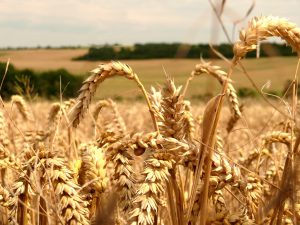 Let the heavens be glad, and let the earth rejoice;
Let the heavens be glad, and let the earth rejoice;